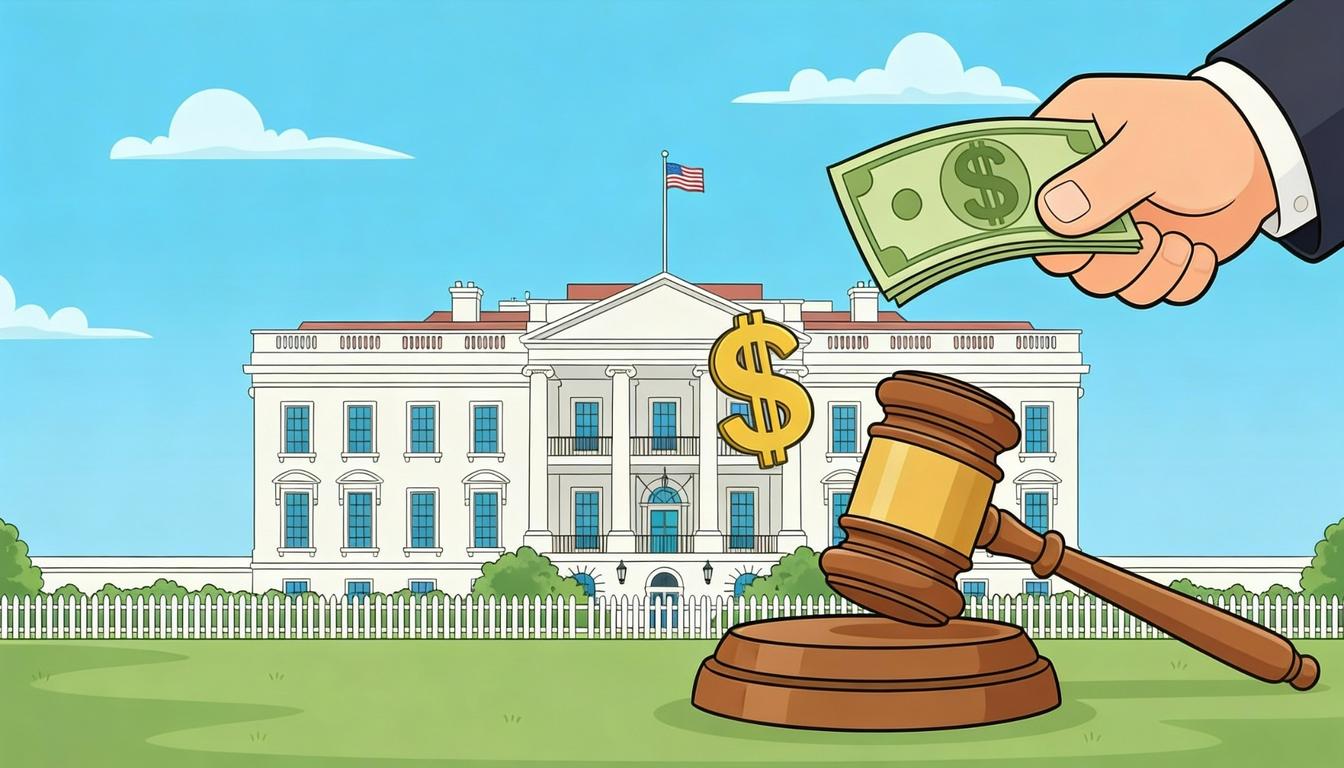
So, you’ve finally got your Section 8 voucher in hand, and you’re ready to find a place to call home. But hold on – did you know that your credit score might play a bigger role than you thought in securing that home? Even though you have a voucher, landlords still have the final say, and a low credit score could make it harder for you to get approved.
Here's the truth: If you don’t find a landlord willing to rent to you within six months, your voucher will expire. After waiting all that time to get approved, imagine losing it because of your credit score! But don’t worry – we’re here to help you understand why your credit score matters and what you can do to improve it, so you can find a home and keep your voucher.
Why Your Credit Score Matters for Section 8 Housing
Many are under the impression that getting approved for a Section 8 Housing Choice Voucher is basically where all hard work ends. Unfortunately, that’s not always the case. Yes, it will pay for part of your rent, but you still have to find a landlord who will accept you as a tenant. This is where your credit score comes into play. And like we cover in another article, 50% of Section 8 Vouchers Don’t Get Used. And credit score denial is the largest part of that.
Even though Section 8 offsets some of the cost, a landlord will want to run a credit check. If your score is low, this may make you appear as a risk to them. They might believe that you will skip a rent payment or create other problems from a monetary standpoint. They may then deny your application, which would send you searching again. If this keeps happening, you might run out of time to use your voucher!
How a Good Credit Score Opens Doors to Better Housing
A strong credit score isn’t just useful for getting loans or credit cards – it can also be your ticket to better housing options, even with a Section 8 voucher. When landlords see a good credit score, they’re more likely to trust that you’ll pay your portion of the rent on time and be a responsible tenant.
Here’s why boosting your credit score can give you more than just access to housing:
- More housing options: With a better score, landlords are more likely to approve you, giving you more places to choose from.
- Safer neighborhoods: A high credit score could get you a house in those posh places with lower crime and quick access to school, jobs, and transportation.
- Less stress: Improving your credit score will reduce the likeliness of being disapproved by landlords; hence, it will be easier to seek a house.
If you’re thinking about eventually purchasing a home, improving your credit score is essential. Interested in owning instead of renting? Learn more in our article on Use Section 8 to Buy a Home! Here's How.
How to Check Your Credit Score – and Why It’s Crucial
It's impossible to make your credit score better if you don't know what it is. Too many people have no idea what their credit score is until it's too late.
Once you know where you stand, you can start to make a plan for improving your credit. A higher score could be the difference between being approved for a great apartment and watching your Section 8 voucher expire.
You’ll also want to keep track of your Section 8 application progress to make sure everything is in order. Don’t know how? Read our guide on How Can I Check My Section 8 Status? for simple steps to stay on top of things.
Simple Steps to Start Improving Your Credit Score Today
You don’t need to be a financial expert to improve your credit score. In fact, there are simple steps you can take right now to start boosting that number and increase your chances of getting approved for a home under Section 8. Here’s how:
1. Pay Bills on Time, Every Time
This might sound basic, but it’s the most important thing you can do. On-time payments make up 35% of your credit score, so it’s vital to pay all your bills (rent, utilities, credit cards, etc.) by their due date. Even a small missed payment can negatively impact your score.
2. Consolidate and Eliminate Your Debt!
Thankfully there are ways out of debt, even if you have much more than you're comfortable with. Companies like Accredited Debt Relief that offer fast, easy approval to reduce your monthly payments by 40% or more on eligible debt. Accredited Debt Relief has no upfront fees to help you reduce your debt and become debt-free in 24-48 months. Reducing the burden of your debt is the first step towards achieving financial freedom, and a crucial one in making sure your Section 8 landlord is willing to rent to you! Too much debt can be a red flag to any landlord. So If you have over $20,000 in debt, make sure to consolidate it!
3. Avoid Opening New Credit Lines
While having credit is important, opening too many new accounts in a short period of time can hurt your score. Stick with what you have and focus on maintaining a solid payment history.
4. Use a Secured Credit Card
If your credit score is really low, a secured credit card can help you start building positive credit. Secured cards require a small deposit, and you use the card just like a regular credit card. The key is to pay it off on time each month to show lenders you can manage your credit responsibly.
What Happens if You Don’t Improve Your Credit Score?
If you choose to ignore your credit score or don’t take steps to improve it, finding a landlord willing to accept your Section 8 voucher could become incredibly difficult. As time runs out, your options narrow. And remember – if you don’t find a place within six months, you could lose your voucher.
This means going back to square one, reapplying for Section 8, and waiting for months or even years to get another opportunity. Don’t let that happen to you!
Why Time is Not on Your Side
The six-month window to use your Section 8 voucher isn’t something to take lightly. If you spend too much time searching for a landlord who will accept you, your voucher could expire before you secure a place. That’s why it’s so important to act fast when it comes to improving your credit score.
Start working on your credit as soon as possible, even before you receive your voucher. That way, when the time comes to find a home, you’re ready. A better credit score opens up better housing options for you and will reduce the likelihood of losing your voucher.
If you are just getting started in your Section 8 process, be sure to review How To Apply for Section 8 Housing Choice Vouchers for a comprehensive look at the process.
Don’t Let Your Credit Score Hold You Back
Your credit score can be the key to unlocking better housing under Section 8. While it may seem like a small thing, landlords take credit scores seriously, even when you have government assistance. By working on your score now, you can increase your chances of finding a place to live before your voucher expires – and set yourself up for future success, whether you’re renting or eventually planning to buy a home.
Take action today. Check your credit score for free, start improving it, and make sure you’re ready when the right home comes along. The clock is ticking on your Section 8 voucher – don’t let a poor credit score be the reason you lose it.
Frequently Asked Questions
Can I still get Section 8 housing with low credit?
That might be possible, but a poor credit rating may make finding a landlord who will accept your Section 8 voucher quite more difficult.
How does my credit score affect my ability to use a Section 8 voucher?
A low score will tell landlords you may not be able to pay your share, in which case you may get rejected, and this may even cost you your voucher because you could not find a house in time.
How do I improve my credit score to increase my chances of finding Section 8 housing?
You can improve your credit rating by paying all bills on time, reducing debt, not opening any new credit, and looking into an option for a secured credit card.
Will checking my credit score lower it?
No, checking your own credit score is considered a "soft inquiry" and it doesn't affect your credit.
Navigating the Section 8 housing process can feel overwhelming, and that's where Section 8 Search comes in. We're more than just a listing website; we're a dedicated resource designed to make finding housing under the Housing Choice Voucher Program straightforward and stress-free. Our platform offers user-friendly tools to explore listings and waiting list statuses nationwide, all built on official HUD data. We're also passionate about providing clear, helpful information and guidance, empowering you with the knowledge you need to understand eligibility, complete your application, and confidently navigate your housing journey.


.png)
.png)
.png)





.png)
.png)
.png)
.png)
.png)
.png)
.png)



